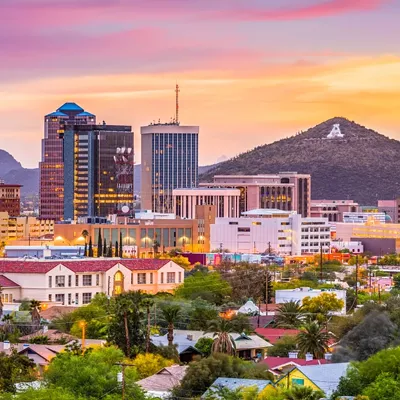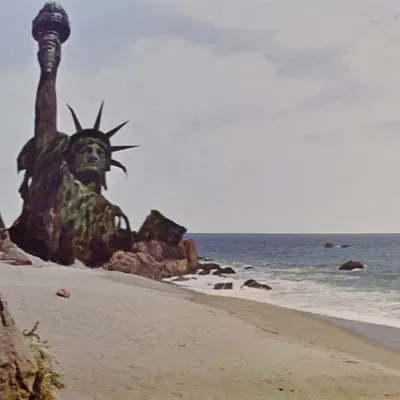A decade later, the act is still exercising tremendous influence on the way Tucson Water treats and delivers its allocation of Colorado River water. Huge recharge basins have been built in Avra Valley, with more to come, where the canal water is filtered through the soil and blended with higher-quality groundwater before being sent to users.
Before passage of the act, Tucson had suffered through two years of CAP water, which broke mains in some areas and sent rusty water into sinks and swimming pools all over town. The water was processed through a $100 million treatment plant on the far westside; continuing controversy eventually led the City Council to shut off the plant in the fall of 1994.
After a year of political backpedaling on water-quality issues, a citizen initiative placed the WCPA on the ballot. Its passage at the polls ensured there would be no future direct delivery of CAP water.
Faced with a mandate to recharge the canal water, the City Council chose to build the Avra Valley basins. At the same time, the treatment plant remains mostly idle, its function limited to adjusting pH levels and adding disinfectant.
Looking back, those who supported passage of the WCPA believe it has had a profound impact on Tucson. "The act ensures that those of us on Tucson Water (service) will not have to drink the nasty CAP water," says Bob Beaudry, the primary financial backer of the effort.
"Because of the WCPA," Beaudry adds, "Tucson Water has recharge basins in Avra Valley. ... There, the poor-quality CAP water is filtered through the earth's mantle, going down at least 350 feet, removing chemicals and other nasty organics."
Longtime recharge proponent Rich Wiersma agrees with Beaudry's assessment. "Because of the initiative," he says, "CAP water does not have to be so chemically treated. When it passed, it protected consumers from an inferior product."
Another backer of the act, Jerry Juliani, suggests other benefits derived from the legislation.
"We, as a community, had been taking the water utility for granted and not watching what they were doing," Juliani says. "With the WCPA, the community woke up the utility and made them move in a direction that was good for the people. It forced them to serve a quality of water that was acceptable to the consumer."
Before she was elected to office in 1999, City Councilwoman Carol West opposed passage of the act. While she now believes the law had severe financial repercussions for Tucson Water ratepayers, she also sees benefits.
"The act delayed the use of CAP water," West declares, "and cost $85 million for (the Avra Valley recharge basins). Plus, we also lost terminal storage because of no direct delivery," she says, referring to the westside recreational lake proposed years ago as a backup water supply in case of canal problems.
"On the other hand," West acknowledges, "the act did unite the community to do creative problem solving, which might not have been done otherwise. So we should celebrate (this anniversary), but it cost us quite a bit."
Tucson Water Director David Modeer, who was not here in 1995, also mentions the financial impact of the act. "Monetarily speaking," Modeer says, "it restricted options and cost the community money. It was less costly to redo the treatment plant."
But Modeer also sees pluses springing from the act's passage. "In some respects," he states, "it had a positive outcome. We took a closer look at what the community wanted and probably focused more on that."
Mayor Bob Walkup, who ran for office in 1999 because of water issues, concurs with that observation. "As a result of the WCPA," he says, "it caused a lot of us to ask some very serious questions about the safety and affordability of water."
Fearing potential negative fallout from the WCPA, Tucson's development community proposed a 1997 ballot measure seeking to overturn it, but that move was strongly voted down. Two years later, Beaudry led an attempt to strengthen the act by requiring streambed recharge of CAP water, but that effort was also overwhelmingly defeated.
"We never thought to specify recharge in the streambeds," Juliani recalls now of the original act. "It seemed so obvious at the time."
While believing streambed recharge may still be in Tucson' future, Juliani appreciates the impact the act has had on the perception of recharge in Tucson.
"With the WCPA, we put recharge on the map," Juliani says. "Before that, it was poo-pooed as being Utopian, and all the experts had reasons why it wouldn't work. Now, of course, everyone says it is great. We made recharge respectable and establishment."
Even as Tucson Water continues to abide by the law, Beaudry has no concerns about another effort being made to overturn it. "They would have to take that to the people," he says, "and the people will not support a change to heavily treated water."










